Civil Liberties, Gaza, Habeas Corpus, Human Rights, Prison Industry, Surveillance, Targeting Muslims, Truth to Power, War Resister
Podcast: Play in new window | Download
Updates:
- Heidi Boghosian:The Committee To Save Mumia Abu-Jamal Places Ad In New York Times – “Mumia Abu-Jamal Is Dying In Prison From Medical Neglect”
—–
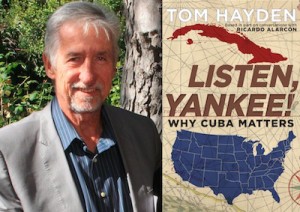
Listen Yankee: Why Cuba Matters
As relations between the United States and Cuba are radically changing, Tom Hayden’s new book Listen Yankee! Why Cuba Matters is especially timely. It offers thoughtful analysis and insights into the efforts of intellectuals, social justice activists and politicians that helped bring about normalization efforts.
Listen Yankee is both a historical account and personal memoir of Hayden as a revolutionary student leader and SDS founder whose own early work to spur poetical change mirrored the transformation going on in Cuba. His book is based in part on conversations with Ricardo Alarcon, one of the leaders of the revolution,. UN representative and a former guest of Law and Disorder.
Guest – Tom Hayden was a leader in the student, antiwar, and civil rights protests in the 1960s. He took up the environmental cause in the 1970s, leading campaigns to shut down nuclear power plants and serving as California’s first solar energy official. He was elected to the California legislature in 1982, serving for eighteen years. He continues to write as an editor for The Nation, and has taught at many campuses from Harvard’s Institute of Politics to UCLA’s labor studies
——
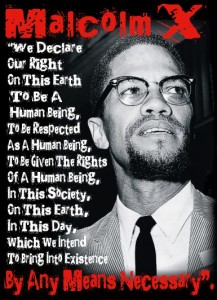
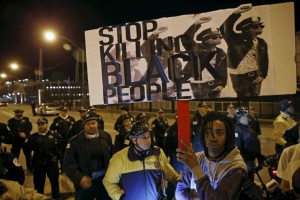
Baltimore and the Human Right to Resistance: Rejecting the framework of the Oppressor
Events continue to unfold within Baltimore, Maryland in response to the police murder of Freddie Gray. Today we examine how stereotypes are perpetuated of the rebels in the streets. The mainstream press, pundits and elected officials black and white call them thugs.
Guest – Ajamu Baraka is a human rights activist, organizer, geo-political analyst and editor and contributing columnist for the Black Agenda Report. Baraka serves as the Public Intervenor for Human Rights as a member of the Green Shadow Cabinet and coordinates the International Affairs Committee of the Black Left Unity Network. An Associate Fellow at the Institute for Policy Studies (IPS) in Washington, D.C., Baraka’s is also a contributor to “Killing Trayvons: An Anthology of American Violence” and Imagine: Living in a Socialist USA.
——————————————————–
CIA Sponsored Terror, Criminalizing Dissent, Gaza, Human Rights, Political Prisoner, Prison Industry, Targeting Muslims, Torture, Truth to Power
Podcast: Play in new window | Download
Updates:
- Michael Ratner: Edward Snowden Bust On Brooklyn War Memorial Replaced By Hologram
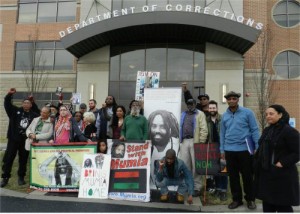
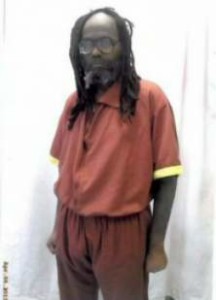
Mumia Abu-Jamal Health Crisis Update
Journalist and political prisoner Mumia Abu-Jamal continues to be in serious medical condition at SCI Mahanoy in Frackville, Pennsylvania. He has lost over 50 pounds and his body is covered with a hard, painful layer of jet-black skin that is both bloody and itchy. Last week his blood sugar registered in the mid 200s and continues to fluctuate, with doctors injecting a double shot of insulin right before he was brought out in a wheelchair to see visitors. As of that visit he had not been seen by a diabetes specialist, and there is concern that the insulin injections may result in an overdose or cause organ damage.
Mumia is so weak that when he tried to go to the infirmary’s bathroom, he could not sustain himself on his feet. He slid down to the floor and waited there, helplessly and unable to call for assistance, for 45 minutes until he was found by a doctor and another prisoner.
Support and demands for medical attention and an improved diet continue to pour in from around the globe. Two teachers delivered letters that their students had written to Mumia; one batch from a third grade class taught by Ms. Marylin Zuniga in Orange, New Jersey; the other from a group of high school students in the Philadelphia Student Union, which fights for school reform and is led by Mr. Hiram Rivera.
ACTION: Please call Secretary of Pennsylvania Corrections John E. Wetzel – 717-728-4109. Demand is that Mumia be allowed to see a team of specialist chosen by his family and supporters to assess and evaluate his condition.
Article: A Slow Death for Mumia Abu-Jamal and Thousands of Prisoners in America by Johanna Fernandez and Heidi Boghosian
Guest – Johanna Fernandez, assistant professor of history at Baruch College and an active member of the Campaign to Bring Mumia Home. She received a PhD in History from Columbia University and a BA in Literature and American Civilization from Brown University. Professor Fernández teaches 20th Century U.S. History, the history of social movements, the political economy of American cities, and African-American history.
—–
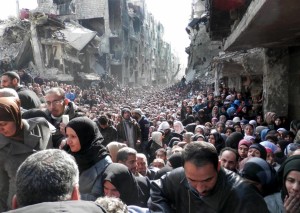
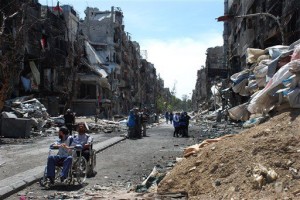
Palestinian Refugees in Syria
In a situation the United Nations has described as “beyond inhumane,” last week an estimated 300 ISIS extremists converged on Yarmouk Palestinian refugee camp in Damascus after three days of fighting. Humanitarian aid has failed to reach starving residents there, even as ISIS members, many of whom appear to be Syrian, portrayed the attack as a liberation of the camp’s residents. In fact the residents –3,500 of whom are children—have been under siege and starvation tactics for two years.
Syrian forces control all entrances to the north and east of Yarmouk and have largely resisted pleas by UNRWA for parcels of food and water to be allowed in. Jaysh al-Islam, one of the main Islamist opposition groups fighting against Isis in the camp, reported to the Guardian that 80 ISIS militants had been killed in a period of two days and some of its positions had been seized. Yarmouk, the largest Palestinian camp in Syria, has been a frequent battle zone, pitting regime forces against mainstream and Islamist rebels. Approximately 16,000 residents remain in the settlement, a decrease from 200,000 prior to the war.
Most inhabitants fled to Lebanon where they now live in overcrowded refugee camps. Many are refugees for the second time, having fled what is now Israel in 1967 or 1948. Some have attempted to flee on migrant boats to Europe and Egypt.
Guest – Salim Salamah, the head of the Palestinian League for Human Rights-Syria, and a former Yarmouk resident who fled in October 2012. He’s exiled in Sweden since February 2013 – spokesperson of the Palestinian League for Human Rights/Syria, a grassroots refugee and youth-led human rights collective.
————————————————————
CIA Sponsored Terror, Civil Liberties, Criminalizing Dissent, Crony Capitalism, Gaza, Human Rights, Iraq War, NSA Spying, Political Prisoner, Surveillance, Targeting Muslims, Torture
Podcast: Play in new window | Download
Updates:
- Michael Ratner Updates On Julian Assange Case: You Can’t Just Keep A Case Going In Custody Essentially In The Embassy
- Julian Assange’s Case Could Go To European Court of Human Rights – Assange Is Being Arbitrarily Detained And Investigation Not Proceeding
- Eight Million Documents On Wikileaks In Highly Searchable Format
- Google Turns Over Wikileak Attorney Client Emails to U.S. Government.
- Federal Judge Denies EPIC’s FOIA Request On Government Surveillance Of Wikileaks Reporters – Denied Under Continuing Investigation Exemption
—–
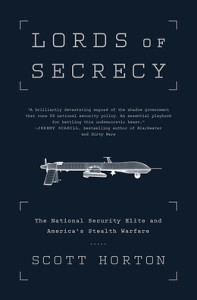
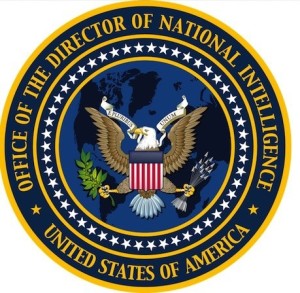
Lords of Secrecy:The National Security Elite and America’s Stealth Warfare
Nearly half a century ago a majority of Americans were concerned whether their country would go to war. It was a time when national debates and public discussions engaged America’s political consciousness. That’s not the case so much these days says our guest author and attorney Scott Horton. His recently published book Lords of Secrecy:The National Security Elite and America’s Stealth Warfare examines how secrecy within the United States government has corrupted fundamental systems of democracy. Scott Horton also surveys the legal authority that the current national security elite have based decisions to torture, wage war and subcontract private soldiers. When operating in secret, mistakes, excesses and crimes committed in the process are often kept quiet.
Attorney Scott Horton:
- Dick Cheney one of the longest serving secretaries of defense, because he had a peculiar atitude about secrecy. He manipulated the news secrecy all the time to give cover to claims and statements he made that turned out not to be true. These claims very frequently matters of the highest consequence.
- The entire case to go to war in Iraq which was in fact led by Dick Cheney rested on claims that they had weapons of mass destruction and that they had aligned themselves and were operating with Al-Qaeda that’s how we got the connection to 911. Those claims were very aggressively put forward by Dick Cheney. They turned out to be completely false. He parried any attempts to challenge them by saying all the intelligence we have on that is . . . secret, so I can’t share it with you.
- Of course, in good time we learned there wasn’t any intelligence or information that supported these claims.
- The lords of secrecy consist of the higher echelon officers of the national intelligence and security bureaucracy and they’re the people who have under American law, the power to create secrets using the classification authority.
- I make the case that they use that power very aggressively, very effectively to make themselves the ultimate decision makers on key national security issues and to remove those matters from the democratic, political process.
- It’s on the lords of secrecy who really influence the final decision when its made by the executive.
- The lords of secrecy, the people who wield the classification power also are part of a revolving door in Washington. They’re in government service, they leave that, they go to work as directors and senior officers of major contractors.
- Those contractors hold a half trillion dollars in contract business every year paid for by tax payers and they also make enormous campaign donations.
- Washington D.C. has emerged as the wealthiest standard metropolitan statistical area in the United States and that’s on the strength of the position of contractors and their ability to suck our treasury dry.
- What the American people don’t know about, they don’t form opinions about. They don’t conjutate about, they don’t become engaged with. That shows how secrecy and this other stuff are a very potent narcotic against democracy effectively, causing democracy to fade away while the national security elites are at the driver’s wheel making all the key decisions.
- I think it allows us to make war without going through the constitutional process.
- It’s really vague on how this go-to-war decision is supposed to be made. There’s the appropriation authority of Congress, there’s the Commander in Chief power of the executive, there’s the power to declare war, and exactly how those rights and powers play out in any given situation really isn’t clear.
- The bottom line is the US waging war overseas without the people of the United States having taken a decision to do so.
- My book has gotten much stronger attention in Europe than it has in the United States.
- A big part of the problem we have is the way national security and particularly intelligence community matters are reported in the United States.
- One thing I looked at the coverage of the drone war in Pakistan and I found very clearly Americans are actually the most poorly informed community globally on this issue.
- The media can’t really act without the whistleblower. It really comes down to the whistleblower being the last and best hope.
- The problem is national security whistleblowers don’t get a fair trial. They wind up being abused, mistreated.
- Let the Justice Department explain why they decided that Petraeus a slap on the fingers, nothing too serious, while they want to throw the book at Snowden.
- Let them give the rationale for the distinction between these cases. They’ve never done that.
Guest – Scott Horton, human rights lawyer and contributing editor to Harper’s Magazine. Scott’s column – No Comment. He graduated Texas Law School in Austin with a JD and was a partner in a large New York law firm, Patterson Belknap Webb & Tyler. His new book Lords of Secrecy The National Security Elite and America’s Stealth Foreign Policy.
—–
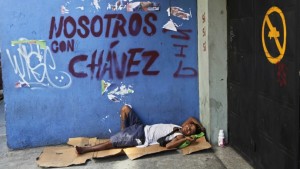
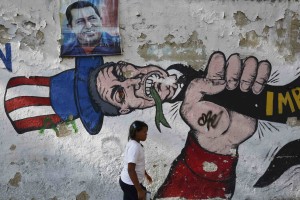
US Sanctions Against Maduro Government Officials
In its continuation of a decades long overthrow of the Venezuelan government, the United States issued new sanctions against Venezuelan government officials who the United States claims are involved in violating human rights guarantees. President Barack Obama issued an order declaring a national emergency with respect to Venezuela. The order lists certain key Venezuelan officials and said that any financial transactions with those officials are barred. This is typical of what the United States does to officials of government it doesn’t like, whether it was Nicaragua in the ’80s or Cuba since 1959 or 1960. These sanctions must also be seen the light of short-lived 2002 military coup in Venezuela in which the United States was deeply involved. Today we want to talk about the broader context of these actions and why the U.S. is continually trying to destabilize Venezuela.
Mark Weisbrot:
- It is pretty crazy that they have to declare Venezuela as an extraordinary threat.
- You don’t see any of the reporters asking the Whitehouse . . . what are you talking about?
- If you look at the Community of Latin American and Caribbean States for example, that is the alternative to the OAS, that was created a few years ago in response to US unpleasant actions in the hemisphere.
- Between 2000-2010 the Columbian military over 5700 innocent civilians, murdered them, and the United States just gave them more military aid.
- I was there during the protest a year ago, and of course it was very different from what I saw . . I was actually kinda shocked. I walked all over and took the metro all over Caracas and the only demonstration you saw were little uprisings in the richest neighborhoods.
- The people most affected the shortages, the ones that go and have to wait in line, can’t afford to buy anything in the black market.
- The poor and the working people, they haven’t protest because they mostly support the government.
- That’s a little bit of a disconnect from what you see in the press.
- This idea that the protests are related to the shortages doesn’t hold up when you see who’s actually protesting. These people have servants who do their shopping, wait in the lines.
- Upper middle class, they have servants, they have storage space.
- These sanctions are probably illegal under International Law.
- Again, there are things that are questionable, things that I wouldn’t try to defend but to create this picture, a very exaggerated picture that’s created here in the media because the U.S. wants to overthrow the government there I think is very unfortunate.
- Venezuela has been a target by the United States for a regime change for at least 13 years.
- A lot of people know if the opposition gets power, its just going to get worse for them.
- Venezuela is not facing a real balance of payment crisis, where they can’t pay for their import. They just have a dysfunctional exchange rate system and they have a fair amount of sabotage too.
Guest – Mark Weisbrot co-director of the Center for Economic and Policy Research, in Washington, D.C. to give us an update. He writes a weekly column for The Guardian Unlimited (U.K.), and a regular column on economic and policy issues that is distributed to over 550 newspapers by the Tribune Content Agency.
——————————————–
CIA Sponsored Terror, Civil Liberties, Criminalizing Dissent, Crony Capitalism, Gaza, Habeas Corpus, Human Rights, Political Prisoner, War Resister
Podcast: Play in new window | Download
Updates:
- Michael Ratner: Jury Awards $218.5 Million in Terrorism Case Against Palestinian Groups
—-


The Campaign For A Commercial Free Childhood
The National Football League, Mattel’s Girl Scout Barbie Doll, and even McDonald’s all have something in common. They’ve engaged in highly sophisticated corporate marketing aimed at enticing young children into becoming life-long consumers and brand loyalists. They’re the subjects of the efforts of The Campaign For A Commercial Free Childhood to cease clever marketing that sends the message that purchasing will make children happy. The campaign has a proven track record of educating families and the public about how industry partnerships with schools, nonprofits and trusted institutions such as the Girl Scouts expose young people to inappropriate content with potentially negative consequences.
Josh Golin:
- Very unfortunately, the Girl Scouts which has been traditionally a wonderful organization providing role models for girls launched a partnership last year with Barbie.
- This partnership includes a website where girls can play a Barbie game about choosing careers but really all they’re doing is looking at different Barbie outfits and seeing other Barbie dolls that they can buy in the store.
- There’s even a Barbie patch that Girl Scouts can earn.
- We thought that this was such a harmful campaign to young girls that the Girls Scouts have traditionally been a refuge from the commercialism that is aimed at kids everywhere and clearly Barbie represents a problematic body type and focus on appearance and fashion and is in some ways the antithesis of what the Girl Scouts have traditionally represented.
- They get 2 million dollars from Mattel from this partnership.
- The message to young girls that you have to look like a fashion doll when you’re going out on a hike is unbelievable.
- On the envelope that the report card came in was ad from McDonald’s saying bring your report card to McDonald’s if you had good grades or had good attendance or even good behavior and you get a free happy meal.
- We do a lot of work on the area of advertising in schools. It’s really an unfortunate trend. There’s been an increase in it since 2008 when we had the economic downturn and schools are understandably looking for revenue any way they can get it.
- There has been this increase in marketing to kids in schools and we think that’s particularly harmful to children. Anything advertised in the school comes with the school’s endorsement.
- One of the things that’s most concerning about what the NFL does is they market Fantasy Football extensively to kids. They even have a curriculum in school to teach kids about Fantasy Football where they could then go online to the kid NFL website and compete for cash prizes.
Guest – Josh Golin, is Associate Director of CCFC and organizes CCFC’s advocacy campaigns and develops its communications strategy. His writings about the commercialization of childhood have appeared in a wide range of publications.
——
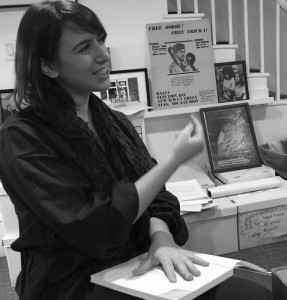
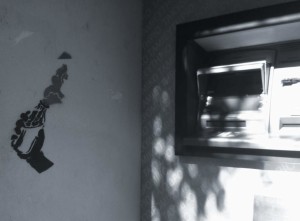
Greece Debt Crisis Postponed, Creditors Back Reform Plans
Earlier this year, we reported on the historic election voting in the Greek anti-austerity party of Syriza, led by Alexis Tsipiras. Syriza’s platform is to take back power within the Greek government, to effectuate a program that will call for cancellation of debt, nationalization of the banks, and expropriating closed factories. Greece is a member of the Eurozone, the nations that have joined with a common currency in 1999. Now, after barely a month in office, the Syriza Party led by Prime Minister Alexis Tsipiras has been forced to make compromises on major issues such as labor reforms and agreeing not to undo privatization plans, to name a few. The crisis began when the European Central Bank said it would reject Greek sovereign bonds as collateral which made Greek banks dependent on Emergency Liquidity Assistance. Last week, Syriza entered negotiations with the EU and ECB and secured a four month extension of its financial rescue.
Nantina Vgontzas:
- Let’s start with December 2009 when the Greek government declared in had sovereign debt of 109 percent, which is something they’ve been covering up the past few years.
- Goldman Sachs was also involved with helping them to cover up those figures.
- We should look at the political economy of the Eurozone constructed in the early 2000s. At the same time in Germany you had wage depression, meaning Germans were getting lower wages so that German exports would become more competitive and the European periphery was used as a dumping post. So they were getting more lending from German banks and that’s how you started getting more debts in Greece.
- The European Union, The European Central Bank and the International Monetary Fund which has played its hand since the 70s in imposing discipline on the countries throughout the developing world and Greece was the first so called advanced country that was starting to enter into this regimen of so called structural reforms that were attached to these bailouts that Greece was recieving to deal with the debt issue.
- Attached to these structural reforms was the termination of collective bargaining agreements, the reduction of minimum wage . . . so you have massive social degradation and at the same time the debt continues to rise.
- So the debt went from 109 percent of the GDP to 175 percent of the GDP.
- So Greece is basically getting loans so it can pay interest on interest starting in the early 2020s and Syriza rightfully identified this as an extended pretend strategy.
- They were the opposition government between 2012 and the end of 2014 and in 2015 they got 35 percent of the vote which wasn’t enough to form a government on its own which is why it had to form a coalition government.
- Everybody knows that Greece can’t pay off its debt til the early 2020s.
- I’ve written a piece in the Jacobin saying that I don’t think Eurozone would take any chances on letting Greece leave the Eurozone because of how helpful it has been to German capital. They’re not willing to take the long term risk, they’re not will to take the short term risk of speculative attacks that would occur on the Eurozone.
- A Greek exit could have produced a domino effect, perhaps Portugal would have left, Italy, you start having big economies like Spain leaving. That kind of domino effect would be unsustainable for the Eurozone to exist.
- There are ways of dealing with this (Greece leaving the Eurozone) You would have to impose capital controls, you would have to nationalize the banks, which is something that the Syriza leadership said that they wouldn’t do prior to elections. They’re going to have to revisit that strategy. Then you would have to figure out how you would ration food, fuel, pharmaceuticals in order to deal with immediate problems. Then you would have to talk about long term policies that would promote growth.
- They (Syriza) cannot move to a technocratic approach because then they would lose thier fundamental element as a left party.
- Half of the police corp (in Greece) support the Golden Dawn. This is something that Syriza has to neutralize while they’re in power.
- They need to be neutralized by promoting a strategy that’s actually going to reverse austerity.
- Jacobin Magazine -Nantina Vgontzas /Financial Times – Wolfgang Munchou
Guest – Nantina Vgontzas, a Greek-American PhD student in sociology at NYU focusing on political economy and social movements. She is a member of the UAW Graduate Student Organizing Committee and is involved in the Academic Workers for a Democratic Union reform movement.
——————————————————–
CIA Sponsored Terror, Civil Liberties, Criminalizing Dissent, Gaza, Human Rights, Political Prisoner, Prison Industry, Supreme Court, Surveillance, Targeting Muslims, Torture
Podcast: Play in new window | Download
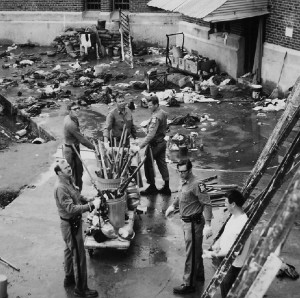
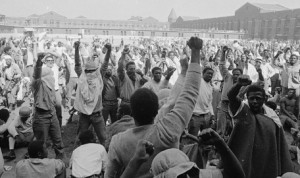
Special on Mass Incarceration : Socialism and Democracy – Lessons from Attica: From Prisoner Rebellion to Mass Incarceration and Back
Fyodor Dostoevsky’s observed that “the degree of civilization in a society can be judged by entering its prisons.” Our guest Dr. Heather Ann Thompson reports in her recent article Lessons from Attica: From Prisoner Rebellion to Mass Incarceration and Back, that according to the Prison Policy Initiative, by 2011 the United States was confining “more than 2.4 million people in 1719 state prisons, 102 federal prisons, 2259 juvenile correctional facilities, 3283 local jails, and 79 Indian Country jails as well as in military prisons, immigration detention facilities, civil commitment centers, and prisons in the U.S. territories.
Dr. Heather Ann Thompson:
- Its important to really examine the broader history of prisons and criminal justice because trying to explain how we became the world’s outlier with so many incarcerated and such a hugely disproportionate number being persons of color, we have a lot to explain.
- Something very clearly happened after the 1960s to our criminal justice system, even more specifically after 1971. Clearly it had a lot to do with the rebellions of that period.
- Sorting all that out is what I’ve been doing for the last decade.
- Just like had happened after the civil war, sort of the first great moment of civil rights unrest in this country when we had 4 million newly freed African Americans demanding a real voice in our society, and meaningful equality.
- The response of that society, in that case, in the South, was to change all the laws. To all of a sudden criminalize black spaces in new ways and almost overnight southern prison institutions not only exploded in population but they went from being all white to all black.
- You fast forward to the 1960s and I think something similar happened.
- Many northern politicians begin to conflate urban protest and unrest, the slow pace of the equality and gains with crime, and began a war on crime in 1964 with Lyndon Johnson before there was immediately impressive rise in crime.
- We need to know much more about the people that were inside the prison walls.
- What happened in the American prison system that we see today, what seems to be the ultimate control, the ultimate punitive penal state.
- One of the long standing lawyers in this case Elizabeth Fink fought this battle on behalf of the Attica brothers for decades and decades. These are the people who are the real repository of that history.
- My role as a scholar, what I tried to do was rescue for the American public, some of those hidden histories. You had a 4 day congregating thousands, 1300 men inside of a penal institution that were willing to stand together and black, Puerto Rican, white and say to the state, we’re willing to negotiate with you logically and in good faith to try to improve the conditions under which we live.
- What made it so really remarkable was the world’s attention was focused on it. Everybody was watching Attica.
- But ultimately, New York state was unwilling to give in on the most important demand which was amnesty.
- Amnesty for which once they surrendered, they would not be charged for any riot-related crimes that the state would alleged they’d committed and an assurance that they would not have reprisals.
- They – state troopers- retook the prison in an utter brutal fashion. They mowed down people first with tear gas then guns, handguns, deer slugs, shot guns, killing scores of people, wounding scores of people.
- Then, realizing the blood bath, officials stood outside and told the world, that the prisoners are the ones that killed the hostages, and from then on tried to control the story, cover up what really happened, that began the 40 year saga of trying to tell the truth of what happened at Attica.
- Had I not met people like Elizabeth Fink who could help me understand this story and had I not spent ten years digging in every knook and cranny to try to uncover the story, this would have been a difficult story to tell because the state has gone to enormous lengths to keep a lid on it.
Guest – Dr. Heather Ann Thompson, is a native Detroiter currently on faculty in the Departments of African American Studies and History at Temple University. In 2015 she will be joining the faculty of the University of Michigan in Ann Arbor. Thompson has just completed the first comprehensive history of the Attica Prison Rebellion of 1971 and its legacy for Pantheon Books.
—–
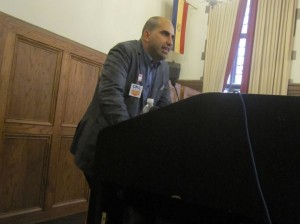
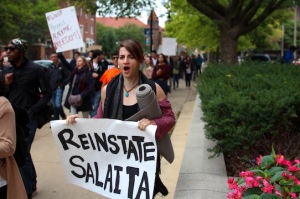
Professor Sues University of Illinois Over Firing for “Uncivil” Gaza Tweets
We bring you to a press conference held in New York City last week at the Center for Constitutional Rights. The Center is representing Professor Steven Salaita along with the Chicago civil rights law firm of Loevy & Loevy. Salaita was hired and then discharged before he could even start his job last summer at the University of Illinois. He was hired by the American Indian Studies program after a thorough vetting. After Israel attacked Gaza where some 2000 people were killed including 500 children. Salaita tweeted several what were termed “uncivil” messages on his twitter account. This was brought to the attention of Zionist donors to the University of Illinois who then pressured Chancellor Phyllis Wise to rescind the hiring. Professor Salaita’s case is probable the most important case in 50 years, not since the 60s when the Supreme Court overturned the non-communist loyalty oath has an issue of this importance arisen. Some 6000 professors have vowed to boycott the University of Illinois.
——-
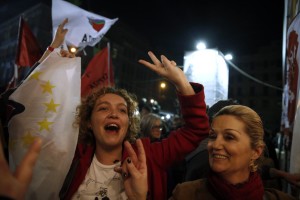
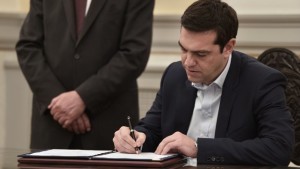
Greece’s Left-Wing Coalition Wins Majority
Last week in a historic election, the Greek people voted in the anti-austerity party of Syriza, led by Alexis Tsipiras winning a 149 seats of the 300 seat Parliament. In the previous 8 years, the Greek people have demonstrated massively, occupied government buildings and have gone on more than 30 general strikes. Now they’ve formed a party to take back power in government to effectuate a program that will call for cancellation of debt, nationalization of the banks, and expropriating closed factories. Will their attempt to alleviate much of the misery of the Greek population succeed? We’ll see.
Dan Georgakas:
- Austerity in Greece means 26 percent unemployment for at least 3 years, 60 percent unemployment for people under 30 which has caused 200 thousand college graduates to leave the country in the last 2 years.
- Greece had the lowest pensions in the EU.
- Wages which were the lowest in Europe were cut about a third.
- Prices in Greece are about the same in the EU elsewhere.
- 300 thousand businesses failed as of 2013.
- What austerity does, having taken away people’s money is raise the property tax and raise the gas and electric taxes.
- It’s a pretty desperate situation, food lines, there’s been a mass movement from the bottom.
- There are a lot of small left wing parties in Greece.
- What Syriza did was put together a coalition of left parties. That was very difficult to do because within the coalition there are Trotskyists, there are Euro-communists, environmentalists, anarcho-syndicalists and so getting to all those people into one room and agreeing on a program is not a very easy thing to do.
- But Syriza itself isn’t there for a traditional party. It is a coalition of parties that probably will transform in time perhaps into a coherent party.
- I would say that if anything characterizes the profile of Syriza its very anti-Stalinist. It wants to go from the base up and talks a lot about horizontalism.
- It’s quite a weak economy and say it will take decades to repair.
- In the minds of the leadership is capitalism and prosperity are incompatible.
- The steps they want to take are very modest, beginning with changing some of the cuts they made in the past, and beginning to deal with the corruption and tremendous waste of money.
- Same day he was inaugurated, he (Alexis Tsipras) went to Kaisariani where 300 Greeks were massacred by the Nazis as they were departing Athens. Most of the people massacred were communists or resistance fighters. Going there after being sworn as prime minister and laying a rose on the graves, he really served notice on the Germans that the days of us kowtowing and being bullied by you are really over and don’t you dare call us pigs anymore.
- People who contact me say that people are euphoric in Athens.
- We realize that the loans to Greece are really self serving. For instance, Goldman Sachs, arranged for Greece to enter the Eurozone in the first place by totally fraudulent cash arrangement.
- They loaned Greece money at a special rate so Greece could pay off its debt to look like it was solvent and then issued new bonds at even higher rates.
- pressproject.gr
Guest – Dan Georgakas, regular columnist for the National Herald, the leading Greek American weekly newspapero co-author of Detroit: I Do Mind Dying and coeditor of Solidarity Forever: An Oral History of the IWW. He was a frequent contributor to now defunct Journal of the Hellenic Diaspora and the Journal of Modern Hellenism. Dan has taught at NYU, CUNY, Van Arsdale Labor College, Columbia University and University of Oklahoma.
—————————————————————-

Please help support Law and Disorder by clicking on Fractured Atlas graphic. This radio show is now a sponsored project of Fractured Atlas, a non-profit arts service organization. Contributions for the charitable purposes of Law and Disorder must be made payable to Fractured Atlas only and are tax-deductible to the extent permitted by law. You can donate as little as 5.00 a month.
CIA Sponsored Terror, Civil Liberties, Criminalizing Dissent, Gaza, Guantanamo, Habeas Corpus, Human Rights, Political Prisoner, Surveillance, Torture, Truth to Power
Podcast: Play in new window | Download
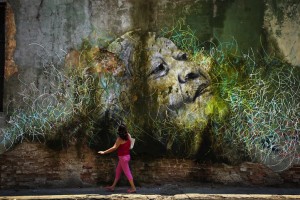
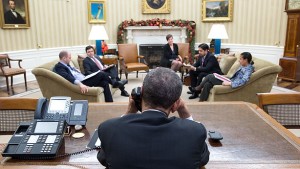
U.S. Cuban Foreign Policy Changes Strategy: Normalizing Relations
We’re joined today by attorney Michael Krinsky, a partner in the famous law firm of Rabinowitz, Boudin, Standard, Krinsky & Lieberman. This the firm that almost has been from the beginning representing the government of Cuba. We speak with Michael about the dramatic reversal of policy and the recognition by the United States of the Cuban government and the eventual establishment of joint embassies. We also speak about the returning to Cuba of the three remaining anti-terrorist Cuban fighters who have been in American prisons for 16 years. Three men of the Cuban Five. That, plus we discuss the changing of the commercial relationships between the United States and Cuba.
Attorney Michael Kinsky:
- It was an extraordinary moment. Word got around that Raul Castro was going to talk to the Cuban people on television at Noon, so everyone ran to find a television, including me.
- I think many people expected Obama to take some minor measures to test the waters perhaps to get things moving.
- Most people were quite surprised about the tone of his speech and what he said.
- I happen to be at a conference of US and Cuban scholars, which were talking about US-Cuban relations, that’s where I saw President Castro’s speech. The first thing he said of course was the cuban heroes. The 3 of the remaining Cuban Five and the place broke into pandemonium. People jumped up literally hugging each other. People were crying, then they quieted down and they listened to the next thing.
- And then when he said President Obama and I have agreed to reestablish normal diplomatic relations. There was silence. Then people half a second later absorbed and again there was a tremendous commotion.
- People felt a sense of triumph. After 55 years of holding despite the Bay of Pigs, despite the economic blockade, despite the special period when the trade with the Soviet Union collapsed, they had held on. In the end, someone put it, the United States came to us.
- You could see it in the streets, you could see it in the restaurants, you could see it in the offices. People were happy.
- They were literally smiling for days afterward.
- The embargo has been in effect for 54 years. It’s as comprehensive an embargo as this country has ever imposed, as any country has every imposed against any country.
- It’s not simply the US saying we the United States won’t trade with Cuba. A major part of it is extra-territorial reach. The effort for Cuba to make trade with third countries difficult and impossible.
- They can’t get US parts for their equipment.
- They can’t use US dollars for international transactions, which is the currency of international trade.
- Shipping to Cuba is made extremely difficult because of the US law that says if a ship goes to Cuba it can’t come to the United States for six months.
- Everyone in Cuba lives on a daily basis what they rightfully call a blockade.
- A blockade implies an effort to interrupt, disrupt trade between Cuba and a third country.
- There is nothing there about Cuban products being sold in the United States. It’s all one way.
- Cubans have developed a lot of innovative medical products that doctors are very excited about.
- There was nothing in the announcements about regular airplane service between the two countries.
- (Michael Ratner: The president has the authority to license almost everything, every economic transaction with Cuba at this point)?
- Right export, import, financial transactions, loans, credits, investments, all of these things are within the president’s licensing authority.
- The United States did not want a left wing socialist revolution to succeed in the Americas.
- The theme publicly and internally in the US government, until about 1991, 1992 and then there was a shift. Then for the first time, the United States publicly started talking about the goal of US policy including the blockade was to change the internal character of the Cuban system. The Cuban government.
- Civil liberties, free elections, free speech – those became for the first time the articulated goals of US policy.
- Guantanamo Bay used to be a Naval Station for coaling, ships operated on coal then. There was a 99 year lease between a captive Cuban government and the United States.
- I’m trying to find the right balance between a great deal of enthusiasm and not necessarily skepticism, but caution.
- It was nice to see the State Department make reference to this, the United States has claims for the nationalization the properties of its companies in Cuba in the early days. Cuba has articulated it has much greater claims against the United States for the blockade and for acts of economic sabotage which have died actually over the years.
- There are claims on both sides that have been articulated in the past.
Guest – Attorney Michael Krinsky, has been practicing law for forty-five years. For three decades, he has led the Firm’s representation of Cuba and other foreign governments, and their agencies and enterprises, as well as the Firm’s practice in the area of U.S. embargoes and export controls. Mr. Krinsky graduated from the University of Chicago’s College in 1965 and its Law School in 1968. After working with the American Civil Liberties Union in Newark, New Jersey, he joined the Firm in 1971.
——
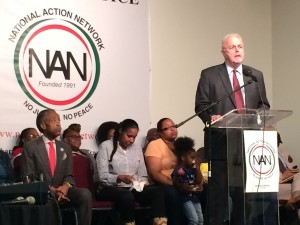
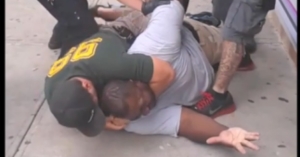
NYPD Unions Respond To Police Shootings, Says Protests At Fault
In the wake of the killing of two NYPD officers, a rift has widened amid police unions and the mayor of New York City. The New York City Police Benevolent Association Officers has suggested that the recent demonstrations against police misconduct and police violence have played a role in the execution style murders. To discuss the rhetoric from the police union and the tabloid media, we’re joined by attorney Jonathan Moore.
Attorney Jonathan Moore:
- It is a critical moment here in New York City and around the country on the issue of dealing with over aggressive policing and the militarization of police, I think they go hand in hand.
- We’ve been fighting this battle in New York for at least 15 years going back to the killing of Amadu Diallo and litigated the stop and frisk cases until the end of last year in to this year.
- Police unions have been an absolute impediment to any reform of the police department in the city of New York over the last several years.
- The union of that police department doesn’t reflect the membership anymore. The police department is close to being majority minority. Patrick Lynch is the vestiges of the old guard who never saw a police officer who did anything wrong.
- The overwhelming majority of these protests have been peaceful and law abiding. They have not been about calling for the death of police officers. They’ve been about calling for fair bias-free, constitutional policing.
- To use the death of these two officers as an attempt to stifle what as you say is growing mass movement, that hasn’t been seen in many years, is unfortunate and should be resisted.
- I’m glad that people are out there, these are important issues.
- The daily use of excessive force that goes on in many communities is never registered, never gathered by the police department. That’s a problem.
- The systemic problem is a culture within the New York City police department that has adopted an us against them mentality.
- There has to be a cultural change within the police department.
- In 2011, the police department was doing close to 700 thousand stops and frisks a year. The fear was that if you impeded the stop and frisks in the way they were doing it. We of course they were doing it based on race, and the federal court found that.
- Their alarmist response was if we stop doing stop and frisk, the crime rate will soar.
- They did 50 thousand stop and frisks this year, that’s down 650 thousand. That’s because they made a change. They stopped imposing quotas on police officers.
- By the way, on the pace of doing 50 thousand this year, and crime is still going down.
- What does that tell you. It tells you for all these years, they were unnecessarily harassing and stopping and frisking, young black men and young Hispanic men, mostly in our communities for no good reason.
- These unions blindly defend officers when they engage in misconduct and that hurts all police officers, all correction officers.
- In an organization like the NYPD of 35 thousand sworn officers, there are going to be people who don’t do what they should do. They should be rooted out and removed from the police department.
Guest – Attorney Jonathan Moore, is a civil rights lawyer known for his work in the stop and frisk suit against the city and representing 3 of the 5 wrongly convicted men in the Central Park jogger case in 1989. He is now representing the family of Eric Garner, a father of six who died from a police choke hold.
—————————————————

Please help support Law and Disorder by clicking on Fractured Atlas graphic (link is fixed). This radio show is now a sponsored project of Fractured Atlas, a non-profit arts service organization. Contributions for the charitable purposes of Law and Disorder must be made payable to Fractured Atlas only and are tax-deductible to the extent permitted by law. You can donate as little as 5.00 a month.
























